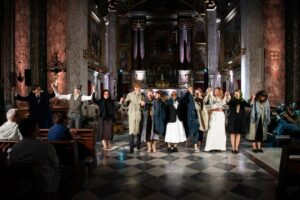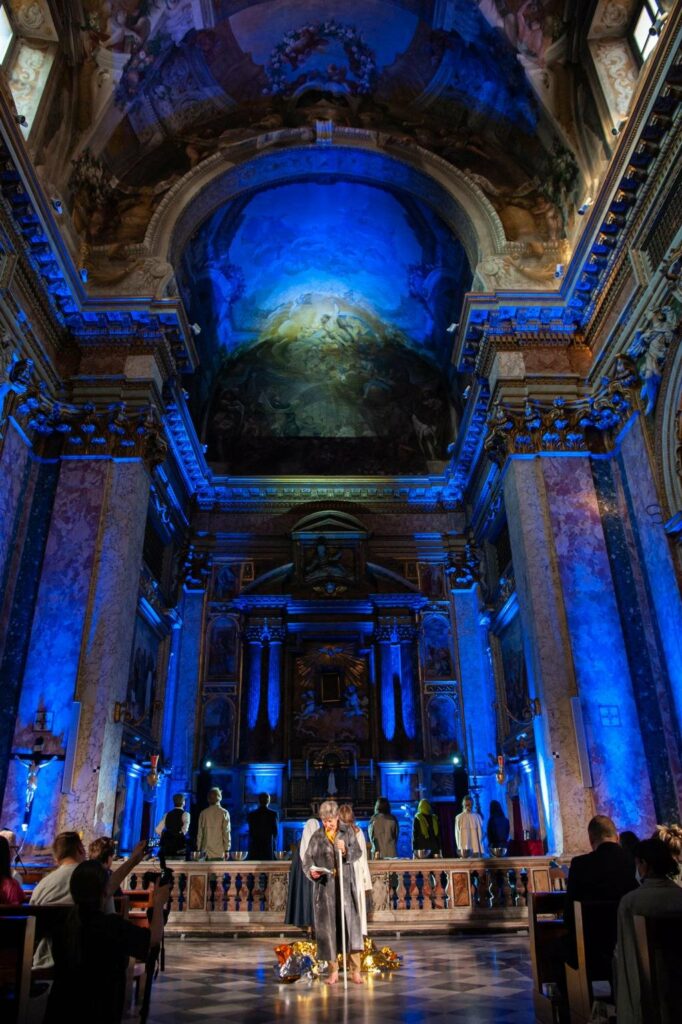
“Job” by Karol Wojtyla-a performance
On May 18 – the day of the second anniversary of the establishment of the St. John Paul II Institute of Culture at the Pontifical University of St. Thomas Aquinas in Rome – a performance of Karol Wojtyła’s “Job” prepared by students of the “JP2 Studies” program and directed by Jarosław Kilian took place in the Church of St. Dominic and Sixtus. Dariusz Karłowicz, president of the Saint Nicholas Foundation and program director of the St. John Paul II Institute of Culture at the Angelicum, introduced the audience to the context of this drama. He recalled that Karol Wojtyła wrote his interpretation of the Book of Job in 1940 when the cruelty of war had to be faced on a daily basis.
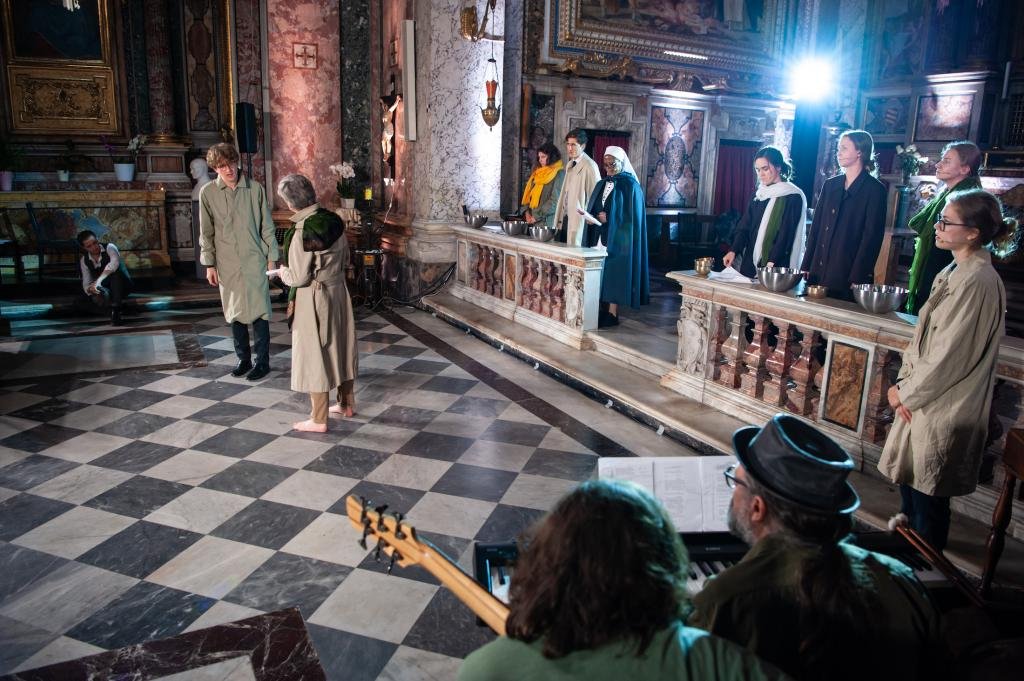
In the drama, antiquity, the times of the Gospel, and the modern period are intertwined. Karol Wojtyła portrays the issues of suffering, human free will, and the role of God in the context of the atrocities of war. Wojtyła writes: “The action takes place in our days – in Job’s time for Poland and the world”.
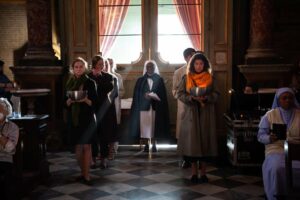
In addition to faithfully depicting the character and story of Job from the Old Testament, Karol Wojtyła adds a chorus, prologos, and epilogos drawn from the tradition of ancient drama. As noted by the director of the performance, Jarosław Kilian, the drama has a changed ending in which the prophet Elihu appears as an answer to suffering, introducing a Christian perspective. Elihu meets Job, who is in despair and cannot understand the meaning of his suffering. The prophet gives him a vision of the Passion of Christ. Only then does Job begin to understand, to touch upon the meaning of his suffering. In the sense of the biblical Book of Job, this suffering is not a punishment for sins. It can affect everyone: the innocent, the wronged, and the humiliated. It is in no way a punishment but rather a great mystery.
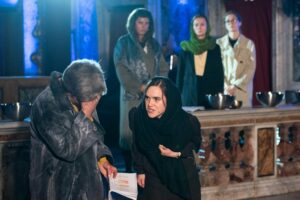
Professor Kilian emphasized that the drama by Karol Wojtyła operates on the border of philosophy and theology. This allowed him to make a remarkable discovery: innocent suffering cannot be understood. The only thing that can be done is to come closer to it and try to illuminate it through the Passion of Christ. Professor Kilian also shared that he found working with the students on the interpretation of “Job” to be a very valuable experience.
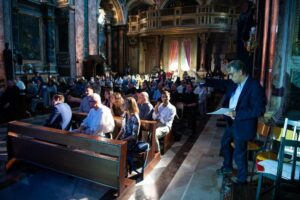
The students who participated in the performance noted that the text, the rehearsals, and the performance itself allowed them to experience the particular sensitivity of the young Karol Wojtyła to the problem of suffering. Moreover, the World War II context of the play greatly influenced their understanding of the suffering associated with the current war in Ukraine. They often emphasized that it was a very significant experience, which was a kind of spiritual exercise for them. The rehearsals and the performance gave them also an extraordinary opportunity to work together.
